

Item description - YO01010176
Kasuga Gata Ishidoro, Japanese Stone Lantern - Stone lanterns, Ishidōrō (石灯籠) in Japanese, are without a doubt the most characteristic part of the traditional Japanese garden. The phenomenon originated from China more than a thousand years ago, from there it spread to Korea and eventually was integrated into Japanese culture as well. All Japanese holy sites, such as Buddhist temples and Shinto shrines, use stone lanterns as sacred light sources. During the 16th century, stone lanterns became very popular among Japanese tea masters and they were used to light the path through the tea garden leading towards the tea house. Ever since then, one or multiple stone lanterns are featured in almost every traditional Japanese garden.
A Japanese stone lantern is made up of multiple independent parts that need to be carefully stacked on top of each other to create a perfectly balanced lantern. The different parts are from top to bottom:
• Hōju/Hōshu (宝珠) - The jewel at the top of the lantern
• Ukebana (請花) - The foundation of the jewel
• Kasa (笠) - The umbrella which protects the fire box from harsh weather conditions
• Hibukuro (火袋) - The fire box
• Chūdai (中台) - The platform of the fire box
• Sao (竿) - The post
• Kiso (基礎) - The foundation
• Kidan (基壇) - The base platform
The Kasuga Gata Ishidōrō (春日型石灯籠) is without a doubt the most popular lantern associated with the traditional Japanese garden. The type originated from the Kasuga Grand Shrine (春日大社) in Nara park, a park well-known for its wandering deer. Multiple carvings can be seen on the hexagon Hibukuro of the Kasuga lantern, including deer as a reference to the lanterns origin.
Specifications
• Origin: Nagoya, Aichi prefecture, Japan
• Material: Shirakawa stone (白川石)
• Age: Shōwa Period
Model and sizes
| Model: | Length: | Width: | Height: | Price: |
| YO01010176 | 70 cm | 70 cm | 220 cm | € 3750.00 |
| EUR: 3750.00 ≈ EUR: Reserved |



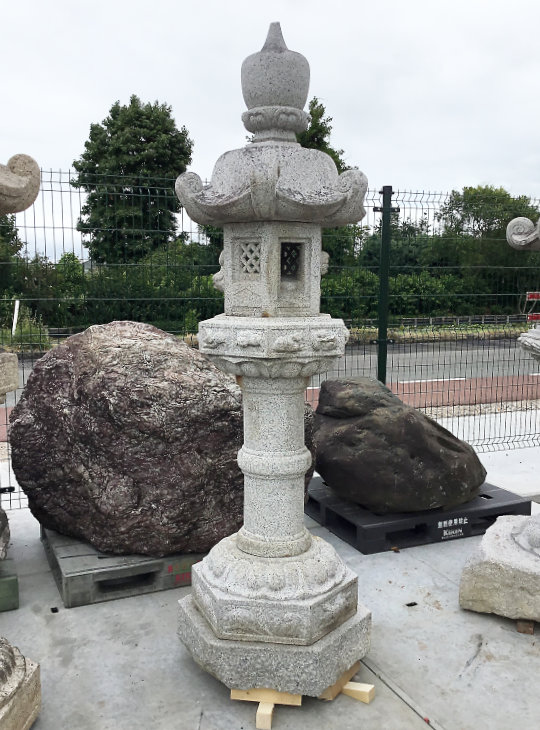
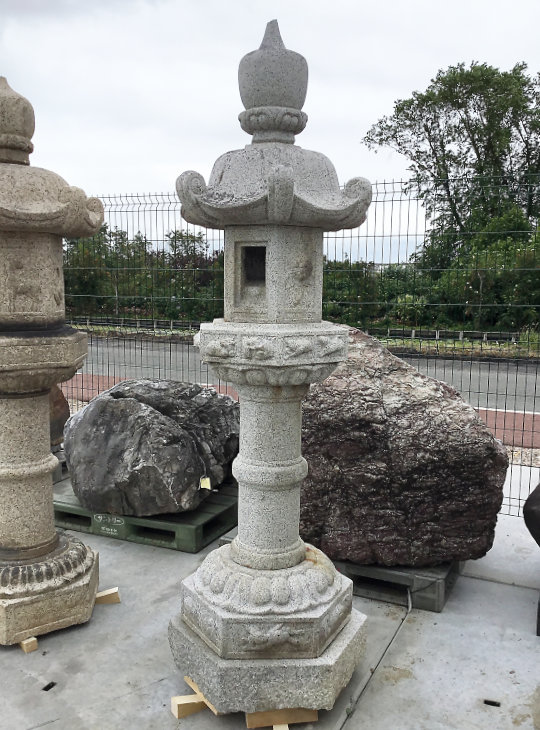
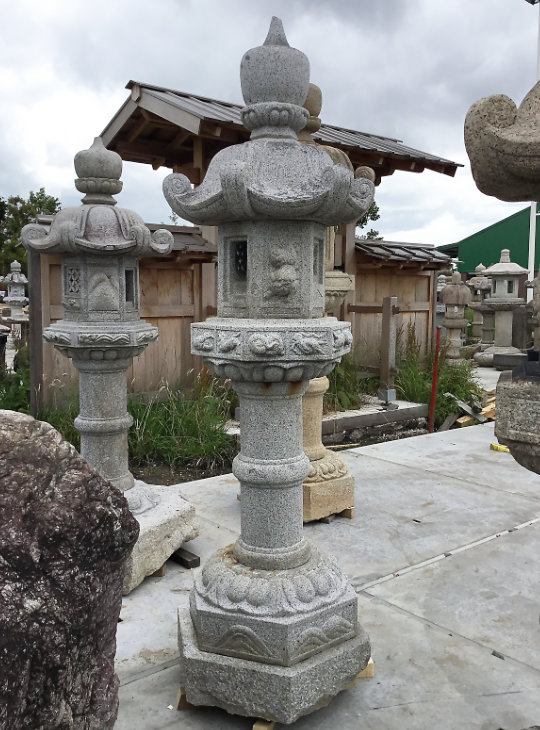
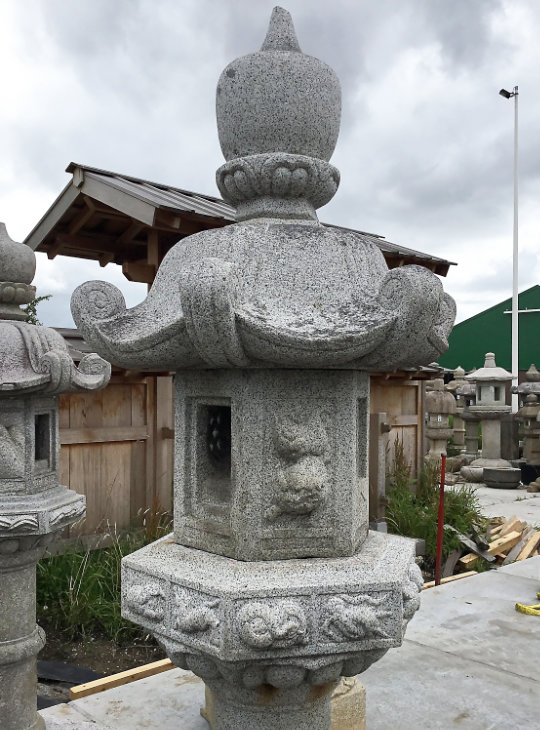
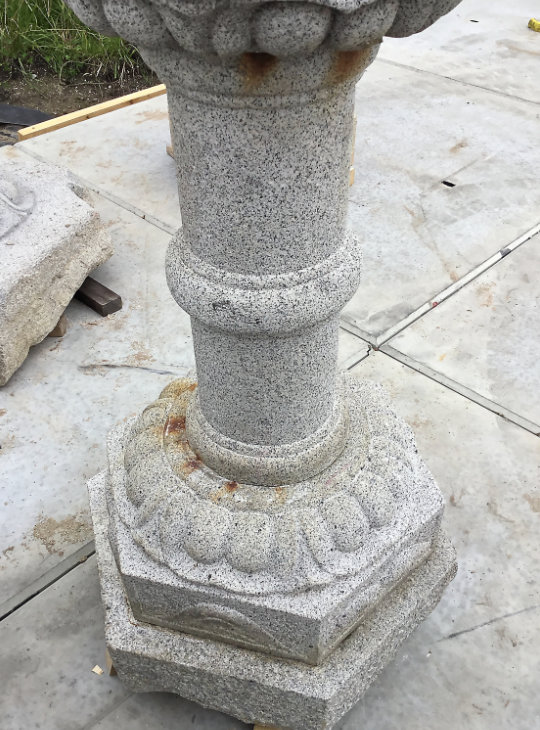
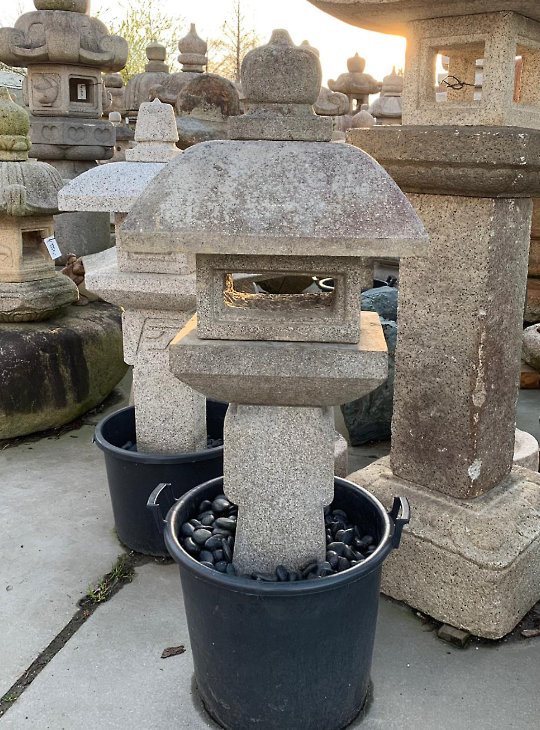
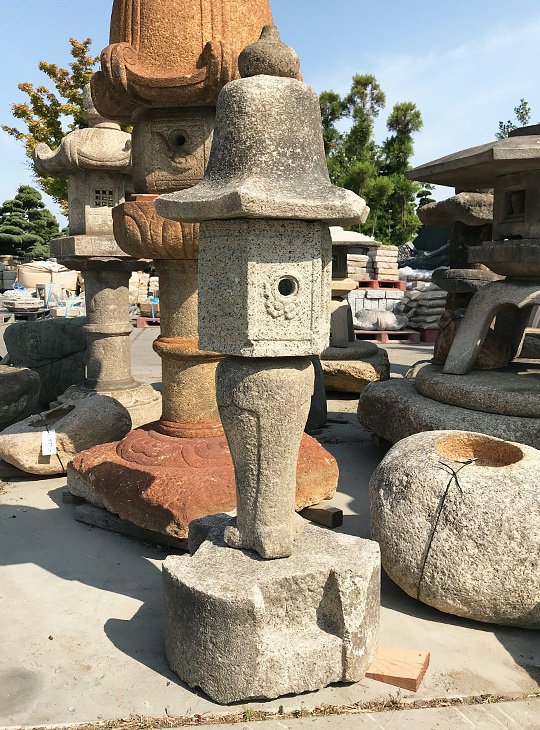









Please complete the following form to request a non-binding shipping quotation